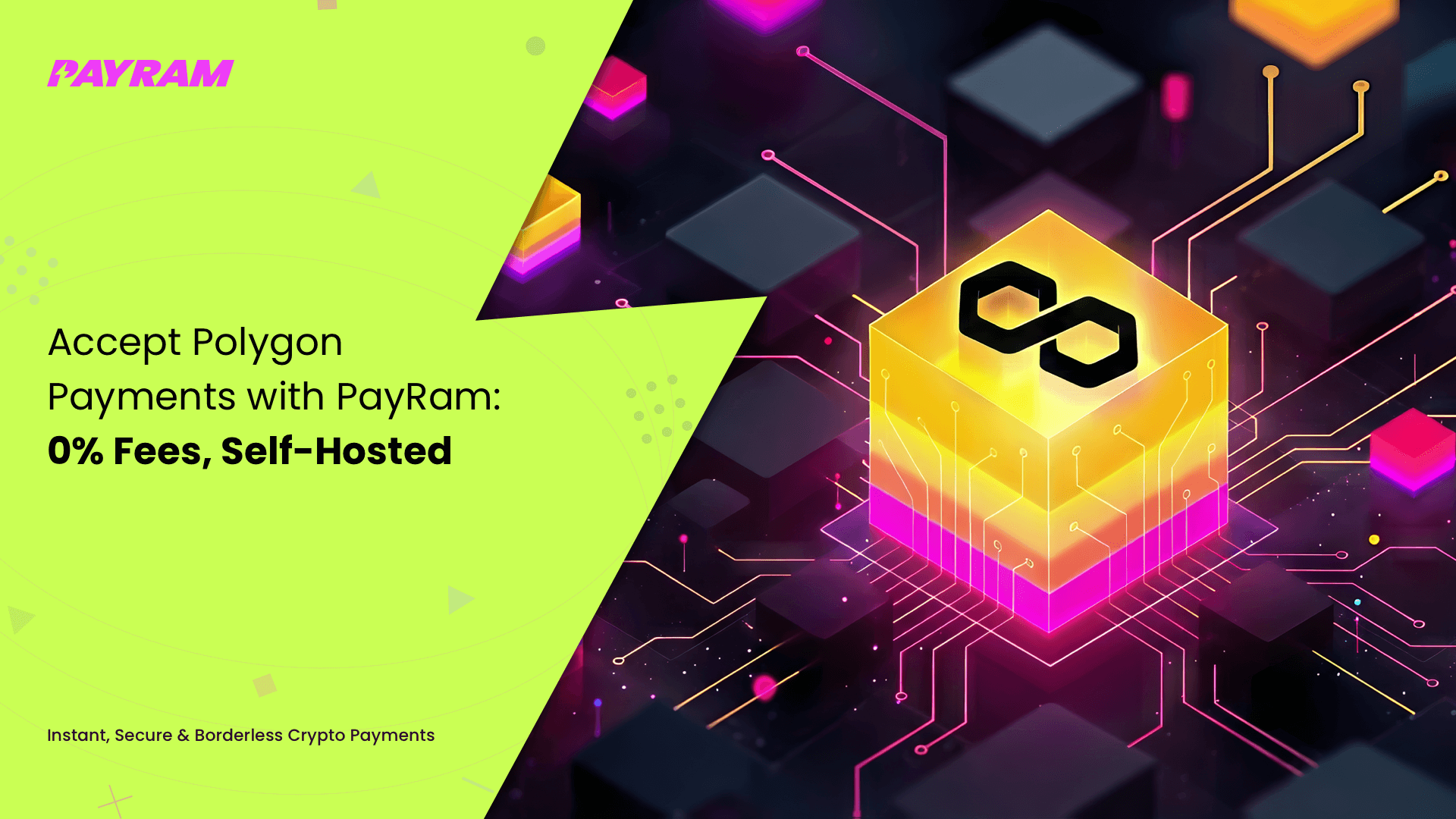Self-Hosted Crypto Payments for iGaming: Surviving Brazil, MiCA, & LOK Laws
Introduction: The 2025 iGaming Landscape
The data is undeniable: the cryptocurrency gambling sector has evolved from a niche alternative into the industry's financial backbone. As of 2025, the global online gambling market is valued at approximately $105.5 billion, with projections suggesting a surge to $286 billion by 2035 according to Future Market Insights. This explosive expansion has caught regulators off guard, triggering a global enforcement crackdown that demands immediate attention from every operator.
However, the context has shifted dramatically since the early days of crypto adoption. We have moved from an era of "grey market freedom" to what industry insiders are calling the "Regulatory Thunderdome." As traditional gambling platforms rush to integrate digital currencies, they face a labyrinth of regulatory hurdles that vary dramatically across jurisdictions. The era of operating with impunity is over. Governments in key markets like Brazil, the EU, and Curacao are no longer just banning crypto—they are actively regulating the payment rails that power it.
"2025 is the year the iGaming market got real: light-touch licensing and legal grey zones belong to the past now. Governments across Latin America, Central Asia, and Europe are racing to regulate iGaming." — NuxGame Regulatory Report 2025
For operators in 2025, payment strategy is no longer just a technical detail. It is business strategy. With traditional banking rails facing unprecedented censorship and blocking orders, the pivot from custodial reliance to financial sovereignty via self-hosted payment gateways is the only viable path to ensure operational continuity.
The Regulatory Thunderdome: Key Jurisdictional Shifts in 2025
The abstract concept of "regulatory challenges" referenced in years past has crystallized into concrete, existential threats in three key jurisdictions that dominate the global iGaming map. Operators must navigate these distinct but interconnected crises to maintain liquidity and market access.
Brazil: Law No. 14.790 & The Banking Blockade
Brazil has awakened with a strict regulatory regime effective January 1, 2025. The implementation of Law No. 14.790 has fundamentally altered the economics of the region. Perhaps the most aggressive enforcement mechanism is the mandate for financial institutions to block payments to unlicensed operators starting May 1, 2025 as outlined by the. Traditional banking rails have been weaponized as choke points, meaning if an operator is not on the government's whitelist, their fiat inflows cease overnight.
Furthermore, fiscal pressure has intensified. A provisional measure raised the Gross Gaming Revenue (GGR) tax to 18%, effective October 1, 2025. Combined with a license fee of R$30 million, these costs squeeze operator margins significantly. For those caught in the transition period or unable to secure local banking partners immediately, leveraging gray market strategies with self-hosted crypto payments has become the only viable rail to maintain liquidity and bypass the banking blockade.
"We can expect a lot of changes and consolidation in Brazil this year... consolidation of what's going to work, what's going to be allowed, what's not going to be allowed." — Udo Seckelmann, Head of Gambling & Crypto at Bichara e Motta Advogados
Curacao: The LOK and the End of Sub-Licensing
For decades, Curacao was the default jurisdiction for startup casinos. That era officially ended on October 15, 2025, with the conclusion of the "Orange Seal" sub-licensing system. Under the new National Ordinance for Games of Chance (LOK), all operators must now apply for a direct license from the Curaçao Gaming Authority (CGA).
This shift brings a compliance shock, requiring enhanced AML/KYC protocols and a physical presence on the island. The "wild west" opacity is gone. Operators are now forced to professionalize their compliance stacks or face license revocation. Self-hosted gateways are critical here, as they allow operators to meet new crypto gambling license requirements regarding data control without relying on third-party processors that might jeopardize their own standing with the CGA.
Europe: The MiCA Era and Stablecoin Constraints
In the European Union, the Markets in Crypto-Assets (MiCA) regulation is now fully enforceable, reshaping the crypto landscape. MiCA imposes strict volume caps on Asset-Referenced Tokens (stablecoins) that are not pegged to the Euro. Consequently, major custodial exchanges like Coinbase and Kraken have moved to delist or restrict USDT for EU users to remain compliant.
This creates a liquidity crisis for operators using custodial payment gateways, which must enforce these delistings. The solution lies in non-custodial stablecoin payments. By understanding how to navigate Europe's new crypto rulebook, operators can continue to accept USDT via the TRC20 network directly from user wallets, bypassing the compliant exchange layer that blocks these transactions.
United Kingdom: UKGC Tightening
In the United Kingdom, federal and state-level regulations create layered compliance requirements. The UK Gambling Commission (UKGC) has explicitly classified crypto assets as "high risk" for Anti-Money Laundering (AML) and counter-terrorist financing.
New requirements effective late 2025 mandate that setting financial limits must be the default option for players. Operators must verify player identities, track transactions, and report suspicious activities with enhanced due diligence. Meeting these varied requirements demands significant resources, and for crypto casinos, it requires sophisticated on-chain analytics to prove the source of funds—capabilities that are easier to manage when you own your transaction data via a self-hosted node.
The Infrastructure Shift: The Rise of USDT and TRC20
While regulation tightens the screws on who can operate, the technology of money is evolving to bypass inefficiencies and deliver the speed players demand. The narrative of "Bitcoin Casinos" is largely outdated. 2025 is the era of the Stablecoin Casino.
Stablecoin Dominance by the Numbers
The cryptocurrency gambling market continues to expand, but the composition of that growth has changed. Stablecoins now comprise 30% of all on-chain transaction volume, reaching a staggering $4 trillion in annualized volume as of 2025 according to data from Chainalysis.
This reflects a clear user preference: players want to bet against the house, not against the volatility of Bitcoin. The combination of rapid transactions, reduced costs, and fiat-like stability makes stablecoin payments the primary currency for modern iGaming.
"Bettors no longer have to worry about sudden 20% swings wiping out their balances before a match ends. By 2025, almost every major crypto betting platform supports both USDC and USDT." — MEXC Industry Analysis
Why TRC20 is the Industry Standard
While Ethereum remains a primary cryptocurrency for high-value settlements, USDT on the TRON network (TRC20) has emerged as the undisputed standard for iGaming. The drivers are simple: speed and cost.
- Speed: TRC20 transactions settle in seconds, compared to the variable confirmation times of Bitcoin or Ethereum.
- Cost: Transaction fees on TRON are often under $1, whereas Ethereum (ERC20) gas fees can spike significantly.
- Adoption: Data indicates that USDT-TRON accounts for 49% of the token's on-chain activity.
For an operator, understanding Crypto Payments is no longer optional—it is a strategic imperative to meet player demand for fast, cheap deposits and withdrawals.
The Vendor War: Custodial vs. Self-Hosted Gateways
The most critical strategic decision for an iGaming operator in 2025 is not which coins to accept, but how to accept them. The market is sharply split between Custodial (Third-Party) and Self-Hosted (Non-Custodial) gateways.
The Risks of Custodial Gateways (BitPay, Coinbase)
Custodial gateways operate like traditional banks: they hold your private keys and process funds on your behalf. For high-risk merchants like those in iGaming, this model is fraught with peril. Just as with traditional finance, custodial crypto processors adhere to strict internal risk policies. This often leads to sudden account freezes, forced rolling reserves, and even termination of service without notice.
Furthermore, the cost of maintaining compliance programs continues to rise. Custodial services typically charge 1% to 2% per transaction, eroding margins that are already under pressure from the new 18% GGR taxes in markets like Brazil.
"The pattern is clear: merchants don't own their rails. They rent them, and the landlord can lock the door whenever it feels risky. Custody risk means your funds sit in someone else's account until they release them." — Khushi, Financial Sovereignty Advocate
The Sovereignty of Self-Hosted Gateways (PayRam)
The search for "self-hosted crypto payment gateway" solutions has surged in 2025, and for good reason. Self-hosted platforms like PayRam offer a fundamentally different architecture: Censorship Resistance.
Because the software runs on your own infrastructure and you hold your own private keys, no third party can freeze your funds or block your transactions. Funds move directly from the player's wallet to your wallet. This architecture is your only true defense against gateway bans, rendering banking blockades like those mandated in Brazil technically impossible to enforce at the gateway level. Additionally, self-hosted gateways respect player privacy by collecting minimal data compared to the intrusive KYC requirements of custodial intermediaries.
Comparative Analysis: PayRam vs. Competitors
When evaluating infrastructure, the differences in fee structures and risk profiles are stark. For example, a direct comparison of(https://payram.com/blog/payram-vs-bitpay-the-definitive-2025-showdown-for-high-risk-merchants) reveals significant advantages for high-volume operators.
Strategic Implementation: Integrating a Self-Hosted Solution
Technological integration challenges remain, but the shift to self-hosted infrastructure is becoming streamlined. Industry data suggests that startup casino software projects can cost anywhere from $50,000 to $100,000, making the 0% processing fee model of PayRam a vital way to recoup development costs quickly.
- Infrastructure Requirements: Modern self-hosted gateways like PayRam offer a streamlined UI-based setup that can be deployed via Docker containers on standard VPS infrastructure (minimum 4 CPU cores, 4GB RAM) in under 10 minutes.
- Security Best Practices: Operators must implement "cold storage sweeping." This involves automatically moving funds from the hot wallet connected to the gateway to a secure multi-signature wallet immediately after receipt to mitigate server risks.
- OnRamp & OffRamp Services: Unlike basic self-hosted scripts, PayRam bridges the gap between traditional finance and crypto by offering integrated OnRamp and OffRamp services. This allows operators to convert fiat to crypto and vice versa without needing external exchanges.
- API Integration: Effective API integration is crucial. PayRam and similar solutions offer standardized APIs that replace old payment rails without disrupting existing user flows, allowing for a seamless transition for players. You can learn more about mastering self-hosted crypto processing for iGaming to ensure a robust setup.
"Adding crypto payments isn't a back-end tweak—it's a marketing superpower. But if you're in a high-risk industry, BitPay or CoinGate will report your transactions to regulators. Choose wisely." — PayRam Integration Guide
FAQs About Cryptocurrency iGaming Regulations (Updated)
What licenses do cryptocurrency gambling platforms need?
Licensing requirements vary by jurisdiction. In 2025, the major shift is in Curacao, where operators must now obtain a direct license from the Curaçao Gaming Authority (CGA) as the master license system has ended. Operators targeting Brazil must secure a federal license and comply with Law 14.790.
Can players remain anonymous while gambling with cryptocurrency?
While blockchain offers pseudonymity, regulated platforms must comply with strict KYC rules. However, "No KYC" casinos utilizing self-hosted payment gateways can offer higher privacy levels by minimizing third-party data sharing, though they must still adhere to the laws of their operating jurisdiction.
How do I avoid account freezes?
The only surefire way to avoid account freezes is to use a self-hosted, non-custodial payment gateway. If you do not hold the private keys to your wallet, you do not control your funds. Learn more about the difference between PayRam and Coinbase Commerce to understand custodial risks.
Which stablecoin is best for gambling?
USDT on the TRON network (TRC20) is the industry standard due to its high speed, low fees, and massive liquidity.
Are cryptocurrency gambling transactions traceable?
Yes, blockchain transactions create permanent public records. Regulators and operators use blockchain analysis tools to track fund movements and detect money laundering.
Does PayRam really charge 0% processing fees?
Yes. PayRam's core payment gateway software uses a 0% processing fee model. The only costs you pay are the standard blockchain network fees (gas). PayRam generates revenue through optional advanced services like fund orchestration and sweeping.
Can I convert my crypto winnings to fiat currency with PayRam?
Yes. PayRam offers integrated OffRamp services, allowing businesses to convert their crypto receipts back into fiat currency in their bank accounts, bridging the gap between on-chain revenue and traditional operational expenses.
Is it difficult to set up a self-hosted gateway?
No. PayRam features a streamlined UI-based setup process. You do not need deep coding knowledge to deploy it; a guided graphical interface allows you to get your gateway running on a VPS in under 10 minutes.
What happens if the Brazilian government blocks payments to my casino?
If you are using a traditional fiat gateway or a custodial crypto gateway that complies with local blocking orders, your payments will stop. However, a self-hosted gateway like PayRam is censorship-resistant because it runs on your own infrastructure, making it technically impossible for a third party to "turn off" your ability to receive funds.
Does PayRam require KYC for me to use the software?
PayRam's self-hosted software is permissionless to install and use. While you must comply with the laws of your own jurisdiction, PayRam does not enforce mandatory KYC or approval processes just to use the gateway technology.
Conclusion: Sovereignty is the New Compliance
The iGaming industry of 2025 is defined by a paradox: unprecedented market opportunity restricted by unprecedented regulatory control. The "Regulatory Thunderdome" is here, and the operators who survive will not be those who merely comply, but those who build resilient, sovereign infrastructure.
If your business relies on a custodial payment processor, you are one policy change or regulatory order away from a total liquidity freeze. Sovereignty is the new compliance. By adopting a self-hosted solution like PayRam, you regain control over your revenue, bypass banking blockades, and future-proof your operations against the storm.
Don't wait for the freeze. Take control of your financial infrastructure today at PayRam and secure your payments against the regulatory tide.


.svg)










.svg)